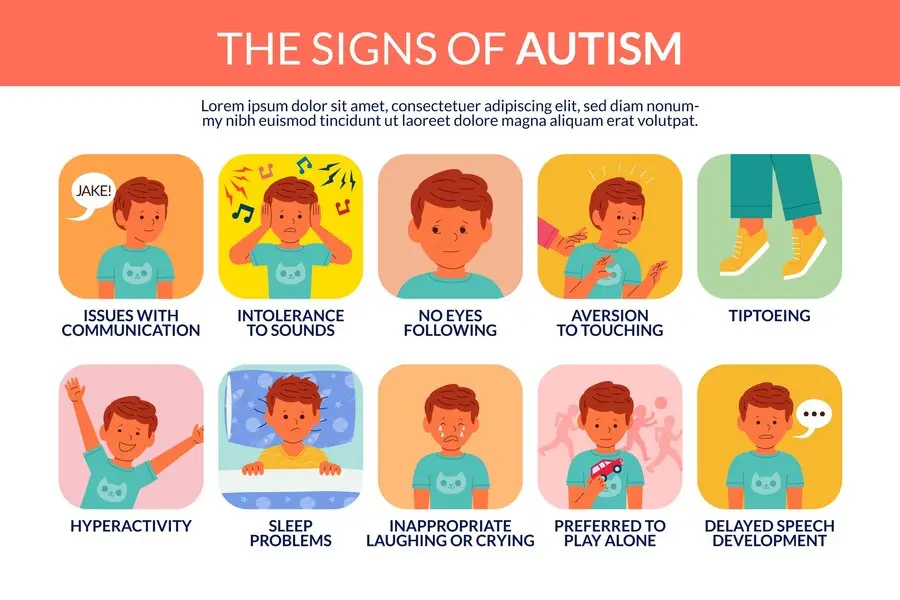Enhancing Lives via ABA and Experimental Psychology in Treating Autism Spectrum Disorder (ASD) and Developmental Disorders

Page Contents
- 1 Introduction: Leading Approach
- 2 Enhancing Lives via ABA and Experimental Psychology in Treating Autism Spectrum Disorder (ASD) and Developmental Disorders
- 3 Understanding ASD and Developmental Disorders:
- 4 Applied Behavior Analysis (ABA) Approach
- 5 ABA Principles and Strategies:
- 6 Experimental Psychology Principles:
- 7 Interdisciplinary Collaboration:
- 8 Future Directions:
- 9 How ABA interventions, informed by experimental psychology, effectively support individuals with ASD and developmental disorders
- 10 Understanding ASD and Developmental Disorders:
- 11 Cornerstone in Supporting the Growth
- 12 Conclusion
Introduction: Leading Approach
Autism Spectrum Disorder (ASD) and other developmental disorders pose multifaceted challenges that require specialized interventions. Applied Behavior Analysis (ABA), rooted in experimental psychology principles, stands as a leading approach in addressing the needs of individuals with these conditions. This article delves into the synergistic relationship between ABA and experimental psychology, elucidating how their combined efforts positively impact the lives of individuals and families affected by ASD and developmental disorders. Accompanied by a detailed table summarizing key aspects, this narrative offers a comprehensive exploration within a five-minute reading time.

Enhancing Lives via ABA and Experimental Psychology in Treating Autism Spectrum Disorder (ASD) and Developmental Disorders
| Aspect | Description |
|---|---|
| Understanding ASD and Developmental Disorders | Characterizes the challenges and symptoms associated with ASD and other developmental disorders. |
| ABA Principles and Strategies | Outlines the foundational principles and evidence-based strategies employed in ABA interventions. |
| Experimental Psychology Principles | Explores how experimental psychology principles inform assessment, intervention, and research in ABA. |
| Interdisciplinary Collaboration | Highlights the importance of collaboration between ABA practitioners and other professionals. |
| Future Directions | Discusses ongoing research and emerging trends in ABA and experimental psychology. |


Understanding ASD and Developmental Disorders:
Autism Spectrum Disorder (ASD) encompasses a range of neurodevelopmental conditions characterized by challenges in social communication, restricted interests, and repetitive behaviors. Other developmental disorders, such as attention-deficit/hyperactivity disorder (ADHD) and intellectual disabilities, may present overlapping symptoms and impact various aspects of functioning, including social interaction, learning, and behavior.
Applied Behavior Analysis (ABA) Approach
Applied Behavior Analysis (ABA) is a scientific approach to understanding and changing behavior. It is based on the principles of behaviorism, which emphasize the importance of observable behavior and the environmental factors that influence it. ABA focuses on systematically analyzing behavior, identifying functional relationships between behavior and its antecedents (events that occur before the behavior) and consequences (events that occur after the behavior), and using this understanding to design interventions that promote desired behavior and reduce problematic behavior.
ABA interventions are individualized and tailored to the unique needs of each person. They often involve breaking down complex behaviors into smaller, more manageable components, teaching new skills through systematic instruction and reinforcement, and modifying environmental factors to support behavior change. ABA techniques can be applied across various settings, including homes, schools, clinics, and communities, and can address a wide range of behaviors and skill deficits.
Overall, ABA is widely recognized as an effective intervention approach for individuals with Autism Spectrum Disorder (ASD) and other developmental disorders, as well as for individuals with behavioral challenges or learning difficulties. It emphasizes evidence-based practices, data-driven decision-making, and collaboration among professionals and caregivers to achieve meaningful outcomes and improve the quality of life for individuals receiving services.

ABA Principles and Strategies:
- Behavioral Assessment:
- ABA begins with a comprehensive assessment of the individual’s strengths, needs, and environmental factors that influence behavior.
- Systematic observation, functional analysis, and standardized assessment tools are utilized to identify target behaviors and develop intervention plans.
- Individualized Intervention:
- ABA interventions are tailored to the unique needs of each individual, targeting communication skills, social interactions, adaptive behaviors, and reduction of maladaptive behaviors.
- Evidence-based strategies, including reinforcement, prompting, shaping, and modeling, are employed to teach new skills and modify behavior.
Experimental Psychology Principles:
- Data-Driven Decision Making:
- ABA relies on continuous data collection and analysis to monitor progress and make informed decisions about intervention effectiveness.
- Experimental psychology principles guide the selection of measurement tools and data analysis techniques to ensure reliable and valid outcomes.
- Experimental Research:
- Experimental research in psychology informs the development and refinement of ABA techniques through controlled experimentation and empirical validation.
- Studies on behavior modification, learning processes, and cognitive functioning contribute to the evidence base supporting ABA interventions.
Interdisciplinary Collaboration:
- Holistic Approach:
- ABA practitioners collaborate with educators, clinicians, speech therapists, occupational therapists, and other professionals to provide comprehensive support for individuals with ASD and developmental disorders.
- Interdisciplinary collaboration ensures that interventions are tailored to the individual’s needs and implemented across different settings, such as home, school, and community.
Future Directions:
- Neurodevelopmental Research:
- Ongoing research in experimental psychology and ABA aims to uncover the underlying neural mechanisms of ASD and developmental disorders.
- Advances in neuroimaging, genetics, and brain-behavior relationships hold promise for identifying biomarkers, refining diagnostic criteria, and developing targeted interventions.
- Technological Innovations:
- Emerging technologies, such as virtual reality, wearable devices, and mobile applications, offer new opportunities for delivering ABA interventions and collecting real-time data.
- Integrating technology into ABA practice enhances accessibility, engagement, and customization of interventions for individuals with ASD and developmental disorders.
How ABA interventions, informed by experimental psychology, effectively support individuals with ASD and developmental disorders
Autism Spectrum Disorder (ASD) and other developmental disorders present multifaceted challenges that necessitate specialized interventions. Grounded in experimental psychology principles, Applied Behavior Analysis (ABA) stands as a leading approach in addressing the needs of individuals with these conditions. This article delves into the symbiotic relationship between ABA and experimental psychology, exemplifying their combined efforts’ positive impacts on individuals and families affected by ASD and developmental disorders. Through compelling examples, this narrative illustrates how ABA interventions, informed by experimental psychology, effectively support individuals with ASD and developmental disorders.
| Aspect | Description |
|---|---|
| Understanding ASD and Developmental Disorders | Characterizes the challenges and symptoms associated with ASD and other developmental disorders. |
| ABA Principles and Strategies | Outlines the foundational principles and evidence-based strategies employed in ABA interventions. |
| Experimental Psychology Principles | Explores how experimental psychology principles inform assessment, intervention, and research in ABA. |
| Interdisciplinary Collaboration | Highlights the importance of collaboration between ABA practitioners and other professionals. |
| Future Directions | Discusses ongoing research and emerging trends in ABA and experimental psychology. |
Understanding ASD and Developmental Disorders:
- Example 1: Children with ASD may exhibit sensory sensitivities, such as aversions to certain textures or sounds, affecting their participation in daily activities.
- Example 2: Individuals with developmental delays may struggle with executive functioning skills, including organization, planning, and problem-solving, impacting their independence and adaptive functioning.
ABA Principles and Strategies:
- Example 3: ABA interventions incorporate functional communication training, teaching individuals with ASD alternative communication strategies to replace challenging behaviors like aggression or self-injury.
- Example 4: Behavior reduction strategies, such as extinction and differential reinforcement, are utilized to decrease problem behaviors, such as repetitive behaviors or non-compliance, in individuals with developmental disorders.
Experimental Psychology Principles:
- Example 5: Research on cognitive processes informs ABA interventions targeting skill acquisition, such as teaching individuals with ASD strategies to improve perspective-taking and social cognition.
- Example 6: Experimental studies on behavioral interventions provide evidence for the effectiveness of interventions like pivotal response training in promoting language development and social engagement in children with ASD.
Interdisciplinary Collaboration:
- Example 7: ABA practitioners collaborate with occupational therapists to develop sensory-based interventions, incorporating sensory integration techniques to address sensory sensitivities and promote participation in daily activities for individuals with ASD.
Cornerstone in Supporting the Growth
Applied Behavior Analysis (ABA), grounded in experimental psychology, offers evidence-based interventions for individuals with Autism Spectrum Disorder (ASD) and developmental disorders. Through the integration of ABA principles and experimental psychology research, practitioners can effectively address the diverse needs of individuals and families affected by these conditions. As interdisciplinary collaboration and ongoing research continue to advance, ABA remains a cornerstone in supporting the growth, development, and well-being of individuals with ASD and developmental disorders.
Conclusion
Applied Behavior Analysis (ABA) and experimental psychology synergize to provide evidence-based interventions for individuals with Autism Spectrum Disorder (ASD) and other developmental disorders. Through systematic assessment, individualized intervention, and interdisciplinary collaboration, ABA practitioners apply experimental psychology principles to promote skill development, reduce problem behaviors, and enhance quality of life. Ongoing research efforts and technological innovations ensure that ABA remains at the forefront of evidence-based practices for supporting individuals and families affected by ASD and developmental disorders.






